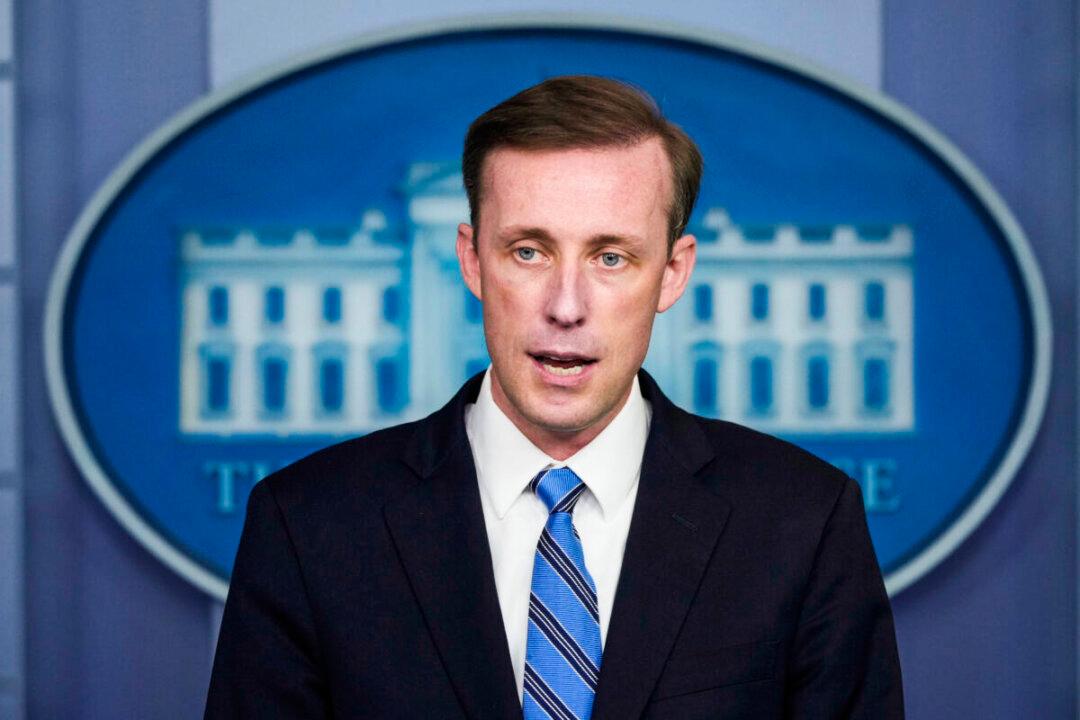U.S. National Security Advisor Jake Sullivan met with Saudi Vice Minister of Defense Khalid bin Salman bin Abdulaziz Al-Saud in Washington Tuesday and “underscored the longstanding partnership” between the two nations ahead of a joint planning committee at the Department of Defense this week.
The meeting comes as oil prices are in part driving up gas prices and inflation stateside in the wake of the Russia-Ukraine conflict, and days before the U.S.-Saudi Arabia Strategic Joint Planning Committee this week, which the Saudi prince will co-chair.





